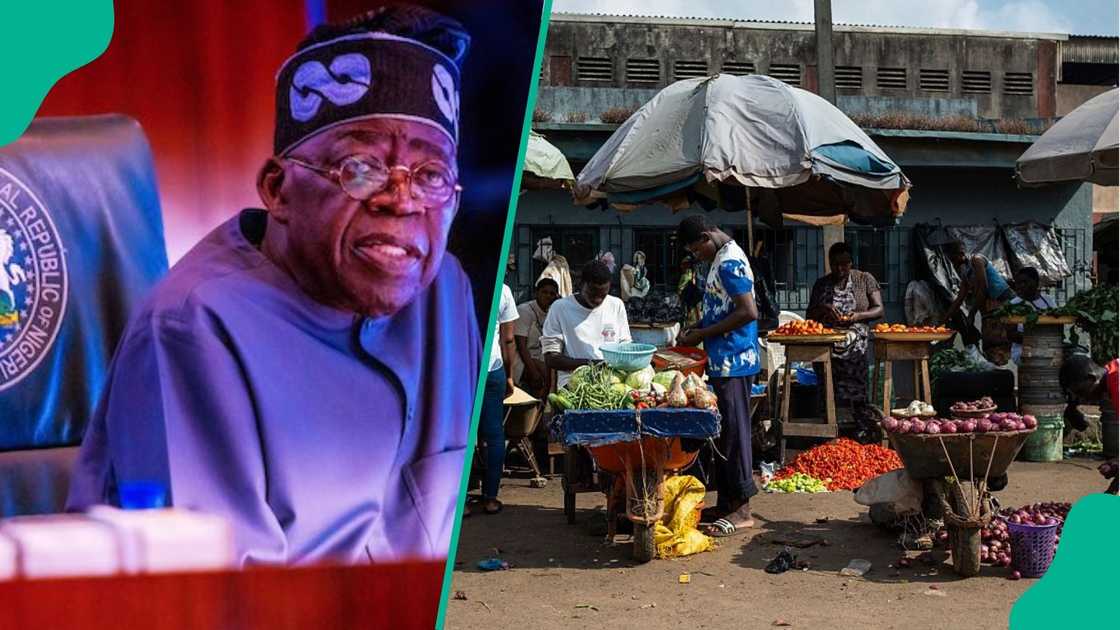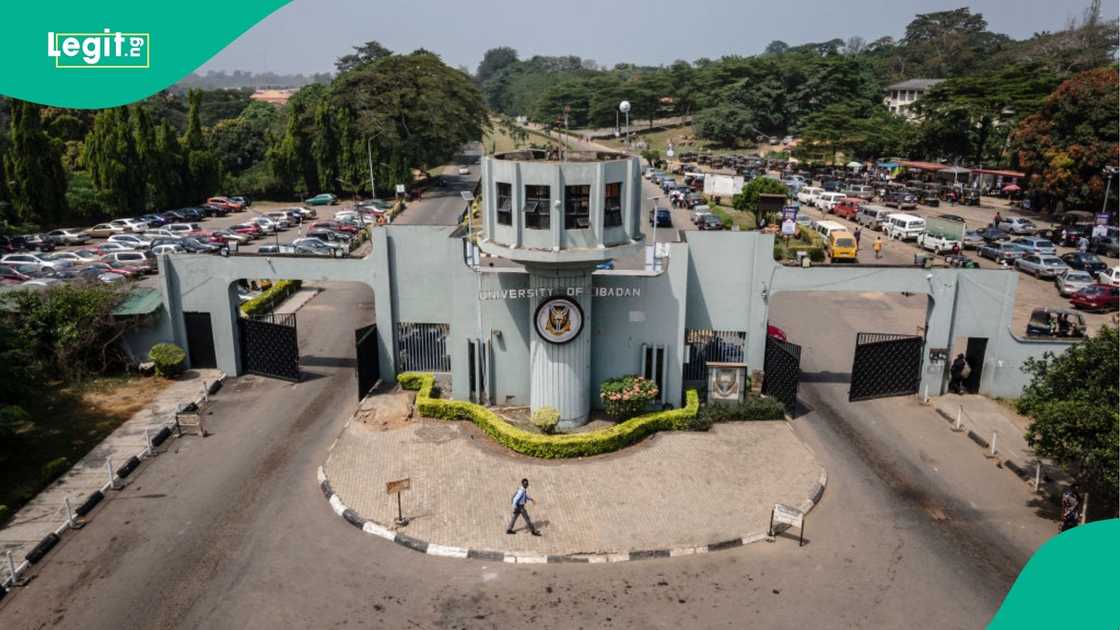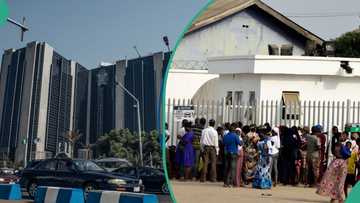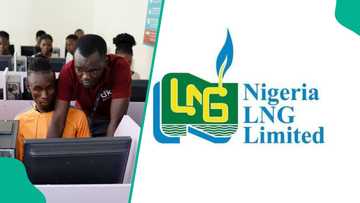Five Govt Loans, Grants Available to Citizens Under Tinubu’s Administration
- The Tinubu administration has introduced several loan and grant schemes to help Nigerians cope with economic hardship, unemployment, and rising poverty levels
- Some of the loans and grants include CrediCorp, NELFUND, a conditional grant, and an SME loan, among others
- The government targets 1,000,000 beneficiaries for the presidential conditional grant and claims that close to 900,000 have benefited
Nigerians are straddled by many challenges, including economic hardships. While many are in financial distress, over 139 million citizens are living in multidimensional poverty, according to data from the National Bureau of Statistics.
A high rate of unemployment also compounds the nation's woes, with 80 million youths reportedly jobless, even though the government claims its economic reforms are beginning to pay off.

Source: Getty Images
Meanwhile, the administration of President Bola Tinubu has provided a number of credit opportunities for low-income-earningapplications Nigerians and small businesses in order for them to escape economic hardship and scale up incomes. Some of these opportunities are available to farmers and university staff.
low-income-earningpresents five government loans or grants currently available to Nigerians.
Nigerian Education Loan Fund (NELFUND)
When the government announced the interest-free loan for students in public universities, applicationsa was a bit slow due to raging media debate on whether subsidy or loan is the necessary initiative to reduce financial barriers to higher education in the country.
While the figure of drop-outs from tertiary institutions is not readily available, a record number of students are leaving behind their dream of education due to mounting financial pressure.
In recent time, many government universities have increased tuition by over 100%. This has shut off hundreds of Nigerians from university education.
However, as the government loan became more popular and accessible, more students have benefited. In addition to tuition, students also receive a monthly stipend of N20,000 during the period of learning (6 months of two semesters)
Established by the Federal Government of Nigeria to ease the financial burden on struggling parents and students, the Student Loan Initiative was intended to increase access to tertiary education without financial stress and as a form of empowerment.
As of July 2025, Legi.ng reported that over 396,000 Nigerian students collected N77 billion in loans to pay their tuition and cater for their upkeep.
How to apply
Every Nigerian citizen with a National Identity Number (NIN) and Bank Verification Number (BVN) can commence the application process. Applicant can be an aspirant with JAMB number, a direct entry student or a full-time student of an Eligible Tertiary Institution (ETI). Personal information such as age, gender, phone number, home address, and email address will be required as well as a passport photograph.
Meanwhile, there are conditions that can disqualify an applicant from getting the loan. According to the Board of the Nigerian Education Loan Fund, applicants must not be on any education loan or other government-sponsored scholarship scheme to be eligible.
Also, applicants with records of misconduct such as plagiarism, cultism, drug offences, felony, violence, submitting fake documents or rustication for examination malpractice shall be disallowed from accessing the loan.
When does repayment start?
One of the possible reasons some students developed cold feet was concerns on the repayment terms of the interest-free loan. However, the government repayment terms and conditions allow beneficiaries to commence repayment two years post National Youth Service Corp program.
Information on the NELFUND website reveals that beneficiaries must disclose status of employment after their NYSC program. It is also stated that only 10% will be deducted from beneficiary’s salary in repayment of the loan. In a case where the beneficiary is self-employed, the individual is expected to remit 10% of profit-earned.
The board also allows beneficiary to repay voluntarily at any time and an extension can even be granted if conditions warrant.

Source: Getty Images
Consumer Credit Scheme (CrediCorp)
The CrediCorp is another government loan scheme available for Nigerians. It is a Development Finance Institution (DFI) scheme set up by the federal government to ease access to consumer credit for the working Nigerians.
There are three projects under this scheme: Project C.A.L.M (Credit Access for Light and Mobility), Project S.C.A.L.E. and YouthCred.
Project C.A.L.M is a low-interest loan which aims to improve the well-being of Nigerians. The funds are given to an individual who wants to convert owned car to Compressed Natural Gas (CNG) or wants to install solar energy systems in homes or elsewhere. It is hoped that the fund will reduce the burden of electricity and fuel costs on Nigerians.
Thousands of Nigerians have reportedly accessed the loan as billions of naira have already been disbursed.

Read also
List of CBN-approved microfinance banks in Nigeria as fake bank with branches in 4 states exposed
On the other hand, Project S.C.A.L.E. targets Nigeria’s local industries. This project provides consumer credit to local enterprises to enable them purchase goods and services from local vendors and manufacturers. With high rate of employment in the country, the project aims to increase demand, grow local industries and create more jobs for Nigerians.
Also, the YouthCred is meant for young Nigerians, especially NYSC members. A qualified applicant can access between N5,000 to N5 million.
Collectively, the Nigerian Consumer Credit Corporation (CREDICORP) had disbursed a N3.5 billion to beneficiaries through financial institutions participating in its consumer credit scheme.
MSME (Micro, Small & Medium Enterprises) Loans
This loan is open to Nigerians operating micro, small or medium enterprises. The loan was established by the government to reduce production costs, create jobs, enhance agricultural productivity and to contribute to economic growth. Any enterprise whose goals align with the MSME loans’ scheme can apply for the supports offered by the government.
The government, through the Bank of Industry (BOI) is reportedly offering single-digit interest loans of up ₦5 million per business with 9% interest, 3-month moratorium, up to 3 years tenure.
Two weeks ago, Punch reported that the Nigerian government sought a fresh $500 million World Bank loan for MSMEs.
Tertiary Institutions Staff Support Fund (TISSF)
TISSF is a Federal Ministry of Education and Tetfund-funded program meant for academic staff in tertiary institutions. According to its website, the aim of the fund is to “address systemic challenges faced by both academic and non-academic staff, ensuring they have the resources to thrive, grow professionally, and contribute meaningfully to their institutions and communities.”
The fund offers N10 Million maximum amount with a 5-year repayment term. Six areas of the loan utility are medical support, family support, SME support, education advancement, accommodation support, and transport support.
With lecturers’ strike making the news under every Nigerian government, the fund hoped to provide succor to staff (both teaching and non-teaching) interested in taking the loan.
Presidential Conditional Grant Scheme
This is another loan scheme which aims to empower Nano businesses. It is a part of the Presidential Palliative Program rolled out in 2024.
This scheme offers financial grants to Nano businesses without repayment obligations. The grant, a sum of N50,000, is open to small businesses in various sectors such as trading, food services, ICT, transportation, creatives, and artisans.
It targets 70% women and youth. Persons with disabilities and senior citizens are expected to make up 10% and 5% of beneficiaries respectively, while the remaining 15% should be distributed to other demographics. This is based on information from the government
Legit.ng reported that the government targeted 1,000,000 beneficiaries in every LGAs and the FCT, but according to a report by the News Agency of Nigeria, nearly 900,000 Nigerians have benefited from the conditional grant.
Source: Legit.ng






